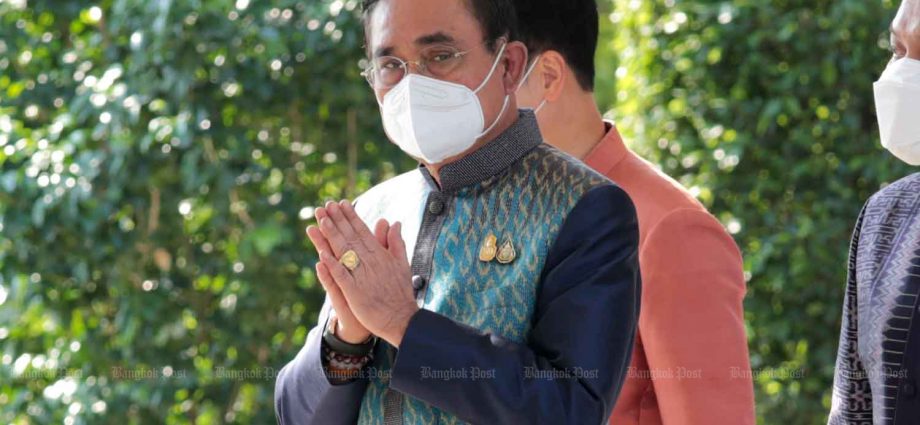House to be dissolved in March, says Prayut

Prime Minister Prayut Chan-o-cha said he will dissolve the House of Representatives early next month so the general election can be held on May 7 as scheduled by the Election Commission (EC).
Speaking after the cabinet meeting on Tuesday, Gen Prayut said that Deputy Prime Minister Wissanu Krea-ngam had informed those present of the time frame for the general election and the do’s and don’ts for a caretaker government.
“I told the cabinet meeting that the House will be dissolved in March. The election is scheduled for May 7 as announced by the EC. … Time frames have been set so concerned agencies can proceed with their work smoothly ahead of the election,” Gen Prayut said.
Asked again by reporters if the House will be dissolved early next month, Gen Prayut said: “I already said it will happen in March so MPs can have some breathing space.”
Previously, Gen Prayut said he would dissolve the House before the end of its four-year tenure on March 23 to allow politicians time to switch parties.
Politicians are required to be members of a party for at least 90 days prior to the election date if they wish to qualify to stand as MP candidates.
The EC has announced a May 7 election if the House completes its term on March 23. In such an event, Feb 7 would be the last day potential election candidates could change allegiances.
But in the case of the House being dissolved sooner, politicians would be required to join a party to qualify as election candidates at least 30 days before the polls are held.
But since the Feb 7 deadline has passed, pundits have been expecting an announcement from Gen Prayut that he would dissolve the House before March 23.
In that eventuality, the election law requires a poll to be held between 45-60 days after the dissolution.
Government spokesman Anucha Burapachaisri said on Tuesday that after a House dissolution, the present government would remain in the role of a caretaker until a new cabinet is sworn into office.

During the interval, the caretaker cabinet must not approve projects that will be legally binding on the succeeding cabinet, except projects which are already part of the national budget.
Moreover, the caretaker cabinet cannot transfer, appoint or sack government officials without the consent of the EC, Mr Anucha said, adding that the caretaker prime minister still has the authority to reshuffle the cabinet when necessary.
In a related development, the Constitutional Court on Tuesday accepted a petition from the EC seeking a ruling on whether non-Thai citizens can be included in the EC’s formula to calculate the number of people represented by each MP, which will have an impact on the number of seats each party could win in the next election, according to a source.
The court will hand down a ruling on March 3, the source said.
According to the EC, three groups of non-Thais are included in the population database, which it used as a guide to the redrawing of constituency boundaries.
These include people with permanent residence permits, those with temporary residence and individuals who have been living in Thailand for more than ten years.
However, migrant workers from neighbouring countries are not included in the poll agency’s electoral calculation.
However, several politicians and academics have spoken out against the EC’s formula, saying non-Thais are not eligible to vote so they should be excluded from the calculation. They suggested the matter be referred to the court.
But EC chairman Ittiporn Boonpracong previously said the poll agency would go ahead with redrawing the electoral boundaries to accommodate an increase in the number of constituency MPs from 350 to 400.

